Are people more willing to have a conversation about end-of-life planning today than they were in the 1980s? That was Jeanne McCusker’s opening question as she interviewed me for her weekly program, “A Graceful Life.” What was I to say?
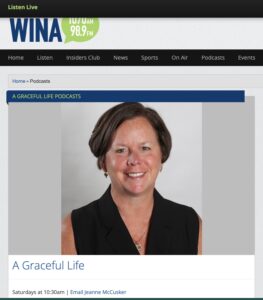
Jean McCusker, host of “A Graceful Life”
I had to admit, “Not much has changed.”
Why? Why, in almost 40 years, has not much changed about end-of-life conversations?
Dying is very personal. You only die once. Although you may get some experience making healthcare decisions for others, like your parents, that is still limited experience. Every end of life is unique. We may have made great strides toward facilitating more peaceful deaths, but each person still faces their death anew.
Hospice and advance directives have not guaranteed peaceful deaths
I do think healthcare professionals and healthcare systems are better today. Take hospice, for example. Medicare started the hospice benefit in 1982. Since then, hospices have grown exponentially. Now, almost everyone knows stories of good hospice deaths. About half of the people who die on Medicare receive hospice care.
Sadly, if you dig down into those numbers, over one-quarter of those on hospice were there less than a week. In other words, they waited until the “last minute” to receive this vital service. Hospice professionals know it is hard to provide the best comfort-focused end-of-life care in less than a week.
 Another change in the last 40 years has been the increased use of advance directive documents like living wills and durable powers of attorney for healthcare. About half the adult population now has such papers.
Another change in the last 40 years has been the increased use of advance directive documents like living wills and durable powers of attorney for healthcare. About half the adult population now has such papers.
Again, all this paper has not improved how well we die. An important article in JAMA last fall questioned whether the emphasis on these documents has led to improvements in end-of-life care. Healthcare professionals might want to listen to a recent GeriPal podcast on this very topic. Just having a piece of paper does not guarantee a peaceful death.
I came to the end of the interview repeating what I often say, “End-of-life decisions, for patients and families, are mainly emotional and spiritual. The big question is, ‘Can I let go?’” THAT truth has not changed. Letting go and letting be can still be difficult.
________________________________________
Chaplain Hank Dunn is the author of Hard Choices for Loving People: CPR, Feeding Tubes, Palliative Care, Comfort Measures and the Patient with a Serious Illness and Light in the Shadows. Together they have sold over 4 million copies. You can purchase his books at hankdunn.com or on Amazon.

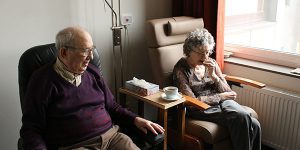 Several years ago, I spoke at the Centra Hospital in Lynchburg, Virginia. There were about 50 people in the room, including members of the clergy, physicians, nurses, social workers, and just plain folks. I divided my presentation, the first half devoted to helping patients and families make end-of-life decisions, and the second half to the emotional and spiritual issues at the end of life.
Several years ago, I spoke at the Centra Hospital in Lynchburg, Virginia. There were about 50 people in the room, including members of the clergy, physicians, nurses, social workers, and just plain folks. I divided my presentation, the first half devoted to helping patients and families make end-of-life decisions, and the second half to the emotional and spiritual issues at the end of life. About six months after the patient died, the lady visited her friend. The now-widow said, “I made a mistake. I made the wrong decision. I should have left the tube out and let him die sooner.”
About six months after the patient died, the lady visited her friend. The now-widow said, “I made a mistake. I made the wrong decision. I should have left the tube out and let him die sooner.”
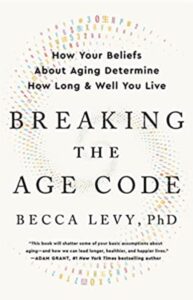 Judith Graham
Judith Graham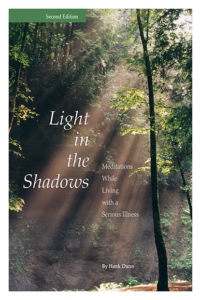
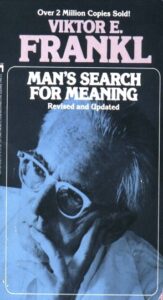 “The experiences of camp life show that man does have a choice of action.… Man can preserve a vestige of spiritual freedom, of independence of mind, even in such terrible conditions of psychic and physical stress.… We who lived in concentration camps can remember the men who walked through the huts comforting others, giving away their last piece of bread. They may have been few in number, but they offer sufficient proof that everything can be taken from a man but one thing: the last of the human freedoms—to choose one’s attitude in any given set of circumstances, to choose one’s own way.
“The experiences of camp life show that man does have a choice of action.… Man can preserve a vestige of spiritual freedom, of independence of mind, even in such terrible conditions of psychic and physical stress.… We who lived in concentration camps can remember the men who walked through the huts comforting others, giving away their last piece of bread. They may have been few in number, but they offer sufficient proof that everything can be taken from a man but one thing: the last of the human freedoms—to choose one’s attitude in any given set of circumstances, to choose one’s own way.